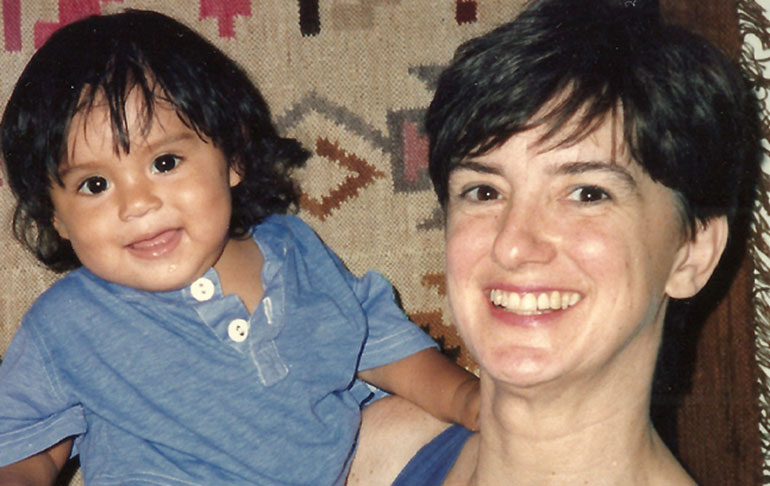Sunday mornings in Lima, I always took a walk in the park that ran along the coast beside the Pacific Ocean. Sunny days brought out everyone in Lima, and seeing families together filled me with longing. Sundays were when I missed my family the most, and although I had chosen to live and study in Peru for a couple of years — to immerse myself in the culture and the language of my birth — I felt far away from my family.
It was easy to see the importance of family in Peru, and it made me reflect on the meaning of kinship. I was adopted as an infant from Lima. Since my mom was a single parent, and I am an only child, my immediate family was quite small. However, we were constantly in touch with my grandmother, aunts, uncle, and cousins through phone calls and visits. Adoption talk never came up, not because it was taboo, but because, while we all were aware of the technicalities, to them I was their daughter, granddaughter, niece, cousin. To me they were my family.
Looking back now on how I was raised, I realize my mom did a wonderful job, especially during the time when international adoption was fairly new. I grew up very much an American girl. And yet, being a well-traveled woman who came from a family with an affinity for everything Latin American, my mom demonstrated a true love for Peru and never hesitated to incorporate its culture into our lives. Our friends included a mix of Latino families spanning several generations. Our home was filled with Peruvian objects. What I remember best are the colorful arpilleras — wall hangings with little dolls sewn onto different scenes: a fruit market, the Andes, a little town with llamas. When the Royal Tombs of Sipan came to the American Museum of Natural History in New York City, we went to see that exhibit many times. I felt pride and awe that these exquisite gold and silver artifacts had been found in my birth country.
My mom never hesitated to fuel my interest in Peru, nor did she push when I showed disinterest. When I was 12, close family friends were planning a trip to Peru. I was asked if I wanted to go, and I said no. Although our friends were baffled at that, I believe my mom understood that I was not ready to immerse myself in my past — even if I did not understand why.
Two years later I was ready to travel to Peru, and then again at 16, when I chose to search for my birth family. Our re-encounter satisfied my need to put faces to those unknown figures of my past. I saw the same big black eyes, dark hair, and cinnamon skin, but I did not feel a connection; there was no immediate bond. I eventually accepted that being blood relatives did not make them my family. To tell the truth, as grateful as I am toward my birth mother, I felt her to be a stranger. Every story is unique, but I believe the reason I decided not to pursue a relationship with my biological mother had to do with the bonds I already had with the family who raised me. Our social ties — loving each other, sharing memories, caring for each other — were stronger than blood ties. Kinship was how we grew together as a family — the ties we formed.
Sundays in Lima are family days. If my family had been there with me, we too would have been going out to lunch, catching up on the news, regaling one other with memories. Seeing families together made me miss my own, but it also made me happy that we are so close. Even though we were apart, I knew that they were there, would always be there, supporting me — and I knew that, as every other Sunday afternoon, after my walk I would go home and Skype with my mom, and we’d have our own family day.



